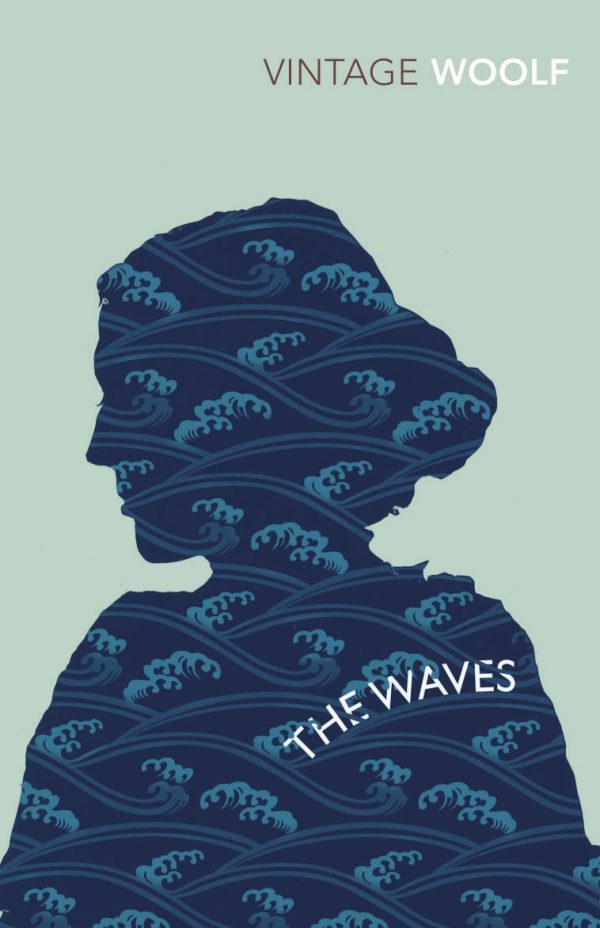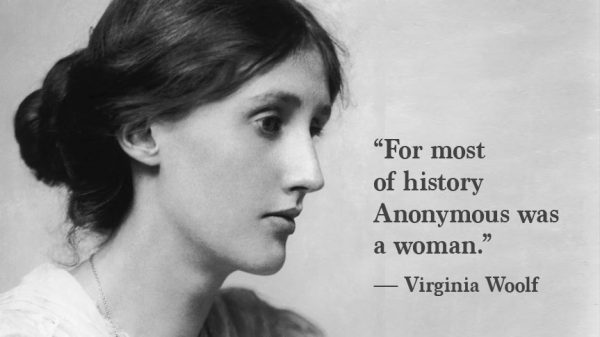Virginia Woolf: The modernist, feminist author renowned for her groundbreaking writing throughout the 20s and 30s such as Mrs. Dalloway and To The Lighthouse. She is also, in my opinion, one of the greatest writers I have ever come across.
You may be wondering why. Yes, her books are considered modern classics, but so are many great books. What sets Woolf aside, for me, is the mesmerizing power of her writing, which has on several occasions moved me to tears. One such book is The Waves (1931) which follows the inner lives of six friends from childhood to death. This book abandons a traditional narrative and instead shows the perceptions of characters in a stream of consciousness as they move through their lives, thus creating an original rawness with every word, as each articulation comes directly from the heart of the characters. Once you get used to the unique form, the novel grabs hold of your heart strings and refuses to let go.

Source: Amazon
Woolf’s novels frequently choose to abandon the material world in the hope of conveying what Woolf described as “that innermost flame” of people and events. I believe this sets her work aside from others, simply because of the way you can so easily see your own life reflected in her works.
In addition to Woolf’s beautiful writing style, I also love her for being so fearless of confronting the controversial issues of her time. For example, her 4th novel, Mrs. Dalloway (1925), received rave reviews in addition to presenting topics such as such as feminism, homosexuality and mental illness in post WWI England.
In fact, many of Woolf’s novels portray aspects of homosexuality (including The Waves), at a time when homosexuality was still a punishable crime. Woolf herself was known for an affair with the famous novelist, poet and garden designer Vita Sackville-West, who was the inspiration behind Woolf’s novel Orlando (1928)- a breakthrough work that received critical praise as well as earning her new levels of popularity.
Woolf is ultimately thought of as perhaps one of the most famous literary feminists, regularly giving lectures on the subject at women’s colleges, which were put together in her book, A Room Of One’s Own (1929) which is often remembered for its suggestion of the idea that:
“A woman must have money and a room of her own if she is to write fiction.”

Source: Feminism And Religion
It becomes even more extraordinary to reflect on Woolf’s great literary achievements when we appreciate the difficulties she experienced throughout her life. Her childhood was darkened by tragedy, beginning with the sexual abuse she experienced at the hands of her half brothers. In 1895, at the age of 13, Woolf experienced her first mental breakdown as a result of the death of her mother. She survived a further emotional set back after the death of her father in 1904, which led to her being briefly institutionalized.
Whilst Woolf’s life was periodically plagued by such emotional desolation, this did not interfere with her literary success. She also found life-long love after moving to London following the death of her father. Leonard Woolf was a fellow member of her literary circle known as the Bloomsbury Group and their marriage in 1912 was described by Woolf as “so complete.” Yet, it was the destruction of WWII that lead to Woolf’s seemingly inevitable downfall. The couple’s London home was destroyed in the Blitz of 1940, after which Woolf was plunged into despair. In 1941 she walked into the river near her house and drowned at age 59.
As heartbreaking and immensely melancholy Woolf’s biography may be, it should not distract from the delicate beauty of her work. To me, she is an inspiration- so why not try reading some Woolf today?
A Few Works By Virginia Woolf:
YouTube Channel: Macat
Featured image via Londonist



